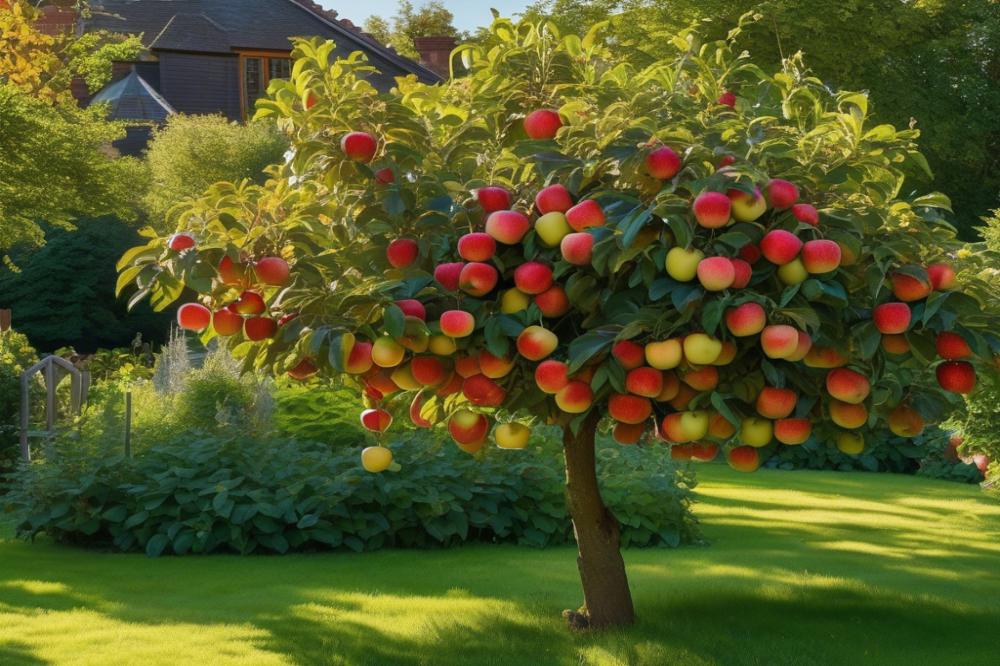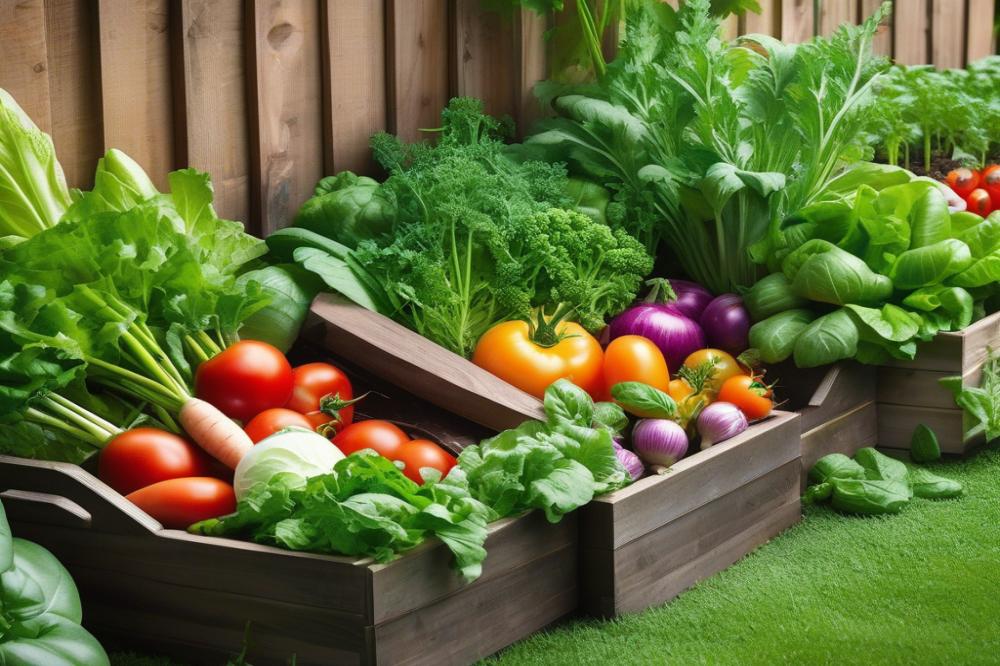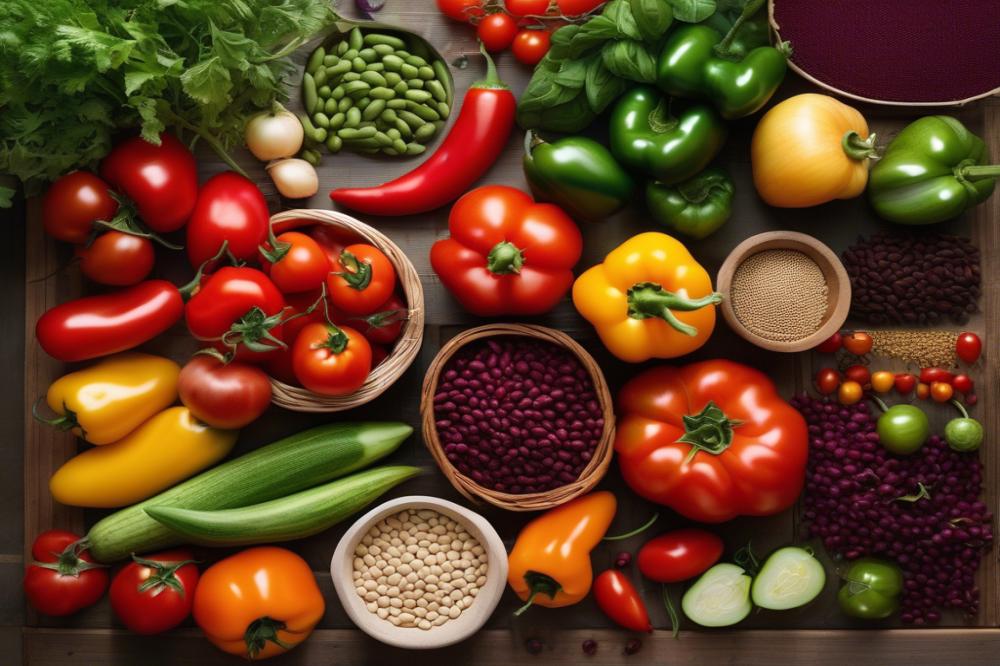Introduction
Fameuse apples, also known as Snow apples, stand as a cherished example of heritage fruit. Grown primarily in Canada, these apples have a long and storied history. Their distinct sweet-and-sour flavor profile has appealed to generations of fruit lovers. Many consider them among the finest regarding cooking apples, ideal for pies and sauces.
In the world of apple cultivation, maintaining various apple varieties is of great importance. Diversification helps to preserve flavors that might otherwise fade into obscurity. Fans of seasonal fruit often seek out Fameuse apples for their unique taste and versatility. Whether you enjoy them raw or cooked, they bring a special character to the table that many modern varieties lack.
Home growers appreciate these apples for their resilience and adaptability. These trees can thrive in various garden settings, allowing enthusiasts to cultivate a piece of history right in their backyard. The effort to nurture these heritage fruits connects gardeners with the past while providing the joy of fresh, delicious harvests. Selecting Fameuse apples enriches both the fruit garden and the culinary experience, making them a valuable choice for anyone interested in fruit cultivation.
Fameuse Apples – Overview

This Canadian heritage fruit is well-known among apple varieties. It is often referred to as Snow Apple. The Fameuse apple stands out because of its delightful balance of sweet and sour. This quality makes it especially favored in cooking and baking. Many appreciate using it in pies and sauces.
Description of Fameuse apple characteristics
These apples are medium-sized, typically round in shape. Their skin is smooth and has a beautiful blush of red over a pale yellow background. This inviting color is complemented by some small, freckles. A white, crisp flesh awaits inside, which adds to its appeal.
Sweet-and-sour flavor profile
The flavor profile of this apple variety is truly captivating. It offers a pleasing combination of sweet and tart notes. When eaten raw, the experience is refreshing and bright. Cooked, these apples become irresistible, transforming into a rich, flavorful delight. Many chefs cherish them for their ability to enhance dishes. With their well-rounded taste, they sit well in both sweet desserts and savory meals.
Appearance and texture
Aesthetically, the Fameuse is a standout in the orchard. The smooth skin and eye-catching colors make it easy to recognize. Its texture is crisp, yet tender, making for an enjoyable bite. In salads or as a snack, these apples provide a satisfying crunch. When crafted into sauces, the softening creates a delightful consistency.
Fruit cultivation enthusiasts often celebrate this apple’s versatility. Whether enjoyed fresh or used in culinary creations, it remains a seasonal fruit that many look forward to each year.
Heritage and History of Fameuse Apples

Origins of Fameuse apples in Canada
Fameuse apples, often recognized as Snow apples, trace their roots back to Canada. This variety emerged in the late 17th century. Originally discovered in Quebec, they have since grown in prominence. Their genetic makeup has Canadian ancestry intertwined with European apple varieties. Cold climates suit these apples well, allowing them to thrive. Farmers began cultivating them for their distinctive flavor profile, which balances sweetness and a hint of sourness.
Cultural significance and historical cultivation
Historically, these fruits played a vital role in Canadian agriculture. They became a staple at regional markets, celebrated for their unique taste. Families often used them in traditional recipes, showcasing their versatility as cooking apples or for raw eating. Communities cherished the seasonal fruit, taking pride in the local harvest. Storytelling around apple picking events enriched their cultural landscape. As generations passed, they maintained a legacy as a heritage fruit, connecting people to their roots.
Comparison with other apple varieties
When placed alongside various apple varieties, Fameuse proves distinct. Unlike sweeter types such as Honeycrisp, Snow apples have a balanced flavor profile. Their tartness sets them apart from bland options like Red Delicious. Cooking enthusiasts appreciate them for making applesauce and pies due to their unique taste. Some prefer them for fresh snacking, enjoying the blend of sweet and sour that dances on the palate. Their historical cultivation not only adds depth to their character but also enhances their appeal among the many Canadian apples available today.
Culinary Uses of Fameuse Apples

Ideal uses for cooking apples
Cooking apples have their own special role in the kitchen. Known for their sweet and sour flavor profile, they work well in various dishes. Famous for their tartness, these apples shine in pies, crisps, and sauces. Many bakers consider them a favorite for recipes that call for baking. Their firm texture holds up nicely against heat, helping to maintain shape while creating a delightful filling. When combined with spices like cinnamon and nutmeg, they enhance the flavor of any crust.
Best recipes featuring Fameuse apples
One classic recipe is the traditional apple pie. The combination of Fameuse apples with sugar, butter, and a flaky crust results in a comforting dessert. Another great idea is to make an apple crisp, where oats and brown sugar mix with the apples to create a crunchy topping. For breakfast, try a simple apple pancake recipe, where the sweetness of the apples pairs perfectly with syrup. Savory dishes are not left out, either. They can be included in savory salads alongside greens and nuts. A hearty apple chutney adds a spicy kick to meats and cheeses.
Raw eating qualities and flavor notes
When enjoyed raw, these apples offer a delightful balance of sweetness and tartness. Their crisp texture makes for a refreshing snack, especially during the fall months. Many people appreciate their unique flavor, making them popular among apple varieties in Canada. Slices of the fruit pair nicely with cheese or nut butter, creating a simple yet satisfying treat. Biting into one reveals a burst of flavor that reflects its heritage. The complex taste makes them appealing to those who seek out seasonal fruit for their snacking adventures.
Growing Fameuse Apples in Your Garden
Growing conditions and requirements
Fameuse apples thrive in well-drained, loamy soil. This heritage fruit prefers moderate moisture but hates standing water. Sunlight is crucial; at least six hours of direct light each day is ideal. A northern climate suits this variety, making it a great choice for many Canadian apples enthusiasts. Proper spacing between trees allows for good air circulation. Aim for at least 15 to 20 feet apart. Regular pruning helps shape the tree and promotes healthy growth.
Seasonal fruit considerations for cultivation
Fameuse apples are typically harvested in late summer to early fall. Knowing when to pick is critical for flavor. Unripe apples can be sour, while those left too long on the tree may become overly sweet. Regular monitoring throughout the season allows growers to enjoy their sweet-and-sour flavor profile at its best. Consider using mulch to keep the roots insulated during the colder months. In spring, watch for flowering; this will signal the start of fruit development.
Pest and disease management
Pests can pose challenges in fruit cultivation. Common issues include apple scab and aphids. Regular inspections can help catch these problems early. Organic treatments are available if you want to avoid harsh chemicals. Keeping the area around the tree clean reduces pests. Encouraging beneficial insects can also control harmful species naturally. Remember that healthy trees are more resilient to diseases. Applying the right fertilizers at the right time can strengthen growth and improve fruit quality. By maintaining vigilance and care, you can enjoy cooking apples and raw eating experiences from your own garden.
Fameuse Apples in Modern Gardening
Popularity among apple varieties today
Fameuse apples have gained traction among gardeners in recent years. Their sweet and sour flavor profile appeals to many, making them a favorite choice. Known for their rich heritage, these Canadian apples find a place in both small gardens and larger orchards. They stand out not just for taste but also for their versatility. These fruit-bearing trees can be excellent candidates for home orchards, with the right care. Homeowners appreciate the balance they offer, being suitable for cooking apples and raw eating alike. More apple varieties have emerged, yet few match the appeal of this classic.
Sustainability and environmental impact
In a world increasingly focused on sustainability, growing heritage fruit like Fameuse contributes positively to local ecosystems. By choosing these apples, gardeners often support biodiversity. Planting heritage varieties reduces the reliance on commercial monocultures. As they flourish, these trees require basic maintenance without heavy chemical input, which is beneficial. Seasonal fruit from local sources often has a better flavor and nutritional profile than mass-produced options. Engaging in fruit cultivation at home means fewer resources are spent on transport and packaging.
Community and home orchard benefits
Joining a community centered around gardening can enrich your life. Sharing excess apples with neighbors fosters goodwill. Many local groups promote the planting of heritage apples as a way to connect people. Gardeners enjoy exchanging tips on how to treat pests and improve their yield. Schools can include these trees in educational programs, teaching students about fruit cultivation. Community orchards often feature these beloved apples, allowing everyone to experience their wonderful taste. Involvement in such projects encourages environmental awareness while also celebrating their historical significance.
Wrapping Up the Flavor Journey
The sweet-and-sour profile of Fameuse apples is truly delightful. Their distinct balance makes them a favorite among apple enthusiasts. When you bite into one, the initial sweetness captures your taste buds, quickly followed by a refreshing hint of sourness. This contrast is what makes them stand out among other varieties.
More than just a tart treat, these apples bring versatility to any home garden. They are not only easy to grow but also resilient to various conditions. Gardeners looking to add a special flavor can find joy in nurturing this variety. Whether eaten fresh, baked into pies, or made into sauce, they offer endless possibilities.
People should definitely consider trying Fameuse apples. Exploring this variety can open up new culinary experiences. Each apple tells a story of balance and tradition. Why not take a chance on something different? Delight in the sweet and sour taste and see how it brightens up your meals. Get to know these apples, and you might just find a new favorite.



